Afghanistan War, CIA Sponsored Terror, Civil Liberties, Criminalizing Dissent, Extraordinary Rendition, FBI Intrusion, Guantanamo, Habeas Corpus, Human Rights, Iraq War, Military Tribunal, Political Prisoner, Targeting Muslims, Torture
Podcast: Play in new window | Download
Updates
- Michael Ratner: Update on Verdict – Corrie v State of Israel
- Cardinal Dolan Who Approved Payoffs For Priests Accused of Sex Abuse To Leave Priesthood Gives Speech At RNC and Closing Speech for DNC
—–

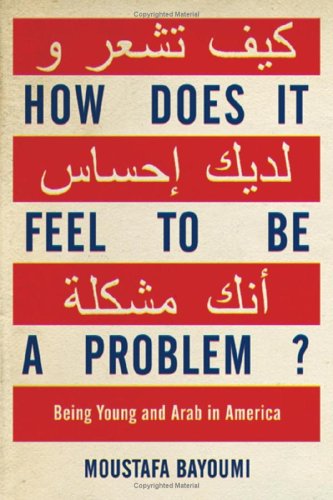
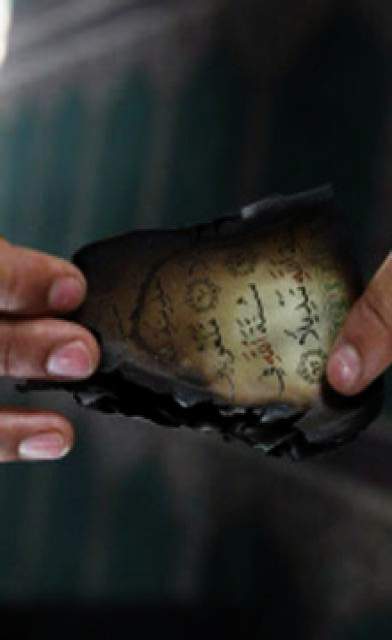
Islamophobia: Anatomy of an American Panic
In the last few weeks, 8 places of worship connected with South Asians or Middle Easterners have been targets in the United States. As many listeners know, six people were murdered at a Sikh temple in Oak Creek, Wisconsin but later that evening a mosque in Joplin Missouri was burned down. Other targets recently included mosques in Rhode Island, Southern California, Oklahoma City and Dearborn, Michigan. These tragic events mark another wave of existential Muslim threats inciting fear and violence against Middle Eastern people while helping to justify the ongoing war on terror.
According to the University of Maryland’s National Consortium for the Study of Terrorism and Response to Terrorism, since 9/11 to 2010 there have been 155 terror incidents in the U.S., and exactly two of them or 1.3 percent have been attributed to international Islamist terror groups. The majority of events involved individuals such as anti-abortionists, right-wing extremists, or extreme animal rights activists.
The Nation Magazine has highlighted the disproportional focus put on Muslim communities in a special issue titled “Islamophobia: Anatomy of an American Panic.” We talk with journalist Lizzy Ratner and authors Deepa Kumar and Moustafa Bayoumi who contributed articles to the Nation Magazine special.
Lizzy Ratner:
- The Nation did a special issue about Islamophobia. It came out in the beginning of July. You can still find the majority of the articles online. The real credit has to go to Abdeen Jabara whose idea this really was.
- The civil rights attorney came to me last year and said the anti-Arab, anti-Muslim has reached fever-pitch.
- So I began to do some research about what exactly was going on and very quickly compiled a massive roster of possible articles.
- For the most part, the Left and Progressives have been far too quiet.
- This bigotry that is flourishing right now has a real history, it’s not a just a product of 9/11 and the post 9/11 era.
- Some of the seeds of bigotry have to do with the role of the United States historically in the Middle East.
- Islamophobia served an agenda and a number of purposes.
Guest – New York City journalist Lizzy Ratner has written extensively for the Nation and Alternet on issues involving Islamophobia. Lizzy is also co-editor of The Goldstone Report: The Legacy of the Landmark Investigation of the Gaza Conflict.
——
Moustafa Bayoumi:
- I was happy to see that the Nation was happy to take on the question of Islamophobia for a double issue.
- There’s been a shift in the last ten years from paranoia around security to a paranoia about the basic facts of Muslim life in the United States.
- In a way you can say it’s a shift from security to culture.
- At any stage, anything that has to do with a daily concerns about living a life as a Muslim American, somehow now becomes charged with sedition. Part of the funding of the anti-Muslim movement in the United States is basic conservative politics and extreme conservative politics.
- And also due to the Israel-Palestine conflict. So people who want to come aboard Israel will make a very distorted picture of what Muslim life is like.
- The NYPD has now a decade long history of “othering” the Muslim-American community.
- The NYPD had been screening The New Jihad for its new recruits.
- It’s a crazy film saying that all of the American Muslims are here as a fifth column ready to pounce. It’s a training film for new recruits. That’s true for the Pentagon and the FBI.
- Muslim Americans are still seen as perpetual foreigners.
- That Muslim American rights are different than everyone else’s rights.
- You’re average American consumer of media does not relate to the victims of the Oak Creek massacre because they don’t see them as being part of the American family.
- They asked American’s in this poll, and 62 percent of the population has never met a Muslim.
- If you’ve never met a Muslim then it’s very easy to believe all these boogey man ideas. That’s why media plays an important role in this issue.
- The FBI (training manual) said that it was in the nature of Muslims to try to take over this country.
Guest – Author Moustafa Bayoumi wrote Fear and Loathing of Islam joins us, his book : Being Young and Arab in America, won an American Book Award and the Arab American Book Award for non-fiction. He is also a professor of English at Brooklyn College, City University of New York.
——
Deepa Kumar:
- As of late the anti-Muslim statements coming from Michelle Bachmann, Joe Walsh, all of whom are Republicans, there is a sense of which it is the Republicans who are responsible for Islamophobia, for the demonization of Muslims and so on.
- This brand of the war on terror gets hatched and part of that was language developed in the 1990s, called the Clash of Civilizations. It was a man named Bernard Lewis who first penned this term.
- It’s not so much we’re going to carry out revenge on Osama Bin Laden but that we’re going to rescue Afghan women. In the case of Iraq, we’re going to bring democracy when no weapons of mass destruction were found.
- This rhetoric has a long history it goes back to the 19th century.
- Both presidents need Islamophobia. They need to generate this fear and hatred of the “Muslim other.”
- Operation Boulder
- The Jonathan Institute holds this conference in Jerusalem . . Islamofacism, the roots are sown at that conference.
- The idea of this menacing Muslim enemy is not new. It was not something created after 9/11 but in fact it goes back a millennium.
- It’s about political goals but religious rhetoric gets used. Same thing with the re-conquest of Spain.
- The Islamophobic rhetoric is one that’s mobilized by the elite.
- I hold both Republicans and Democrats responsible. These rabid right wingers get their confidence from mainstream figures like Walsh, like Bachmann and others.
- The sad reality is that the Democrats have done nothing to counter this.
- The Democrats are not an ally in this fight.
- I take inspiration from 2 movements in the sixties, the civil rights movement and the anti-war movement. I think these 2 strategies need to come together in fighting Islamophobia.
- We have to take on both the far right and challenge the priorities of empire and bring together a multiracial coalition that can actually change a generation.
- It was President Clinton with Anti-Terrorism and Effective Death Penalty Act in 1996 which made it legal to actually deport people with secret evidence. We know this lays the basis for the Patriot Act. This has really been a bipartisan project in the interest of empire.
Guest – Deepa Kumar, an Associate Professor of Media Studies and Middle Eastern Studies at Rutgers University. Her work is driven by an active engagement with the key issues that characterize our era–neoliberalism and imperialism. Her first book, Outside the Box: Corporate Media, Globalization and the UPS Strike (University of Illinois Press, 2007), is about the power of collective struggle in effectively challenging the priorities of neoliberalism.
———————————————–
CIA Sponsored Terror, Civil Liberties, Habeas Corpus, Human Rights, Iraq War, Military Tribunal, Prison Industry, Supreme Court, Torture
Podcast: Play in new window | Download
Updates:
- Michael Ratner: Update on Julian Assange
—-
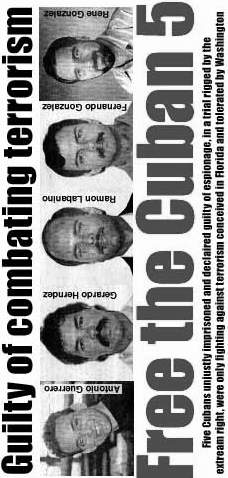
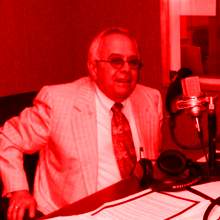
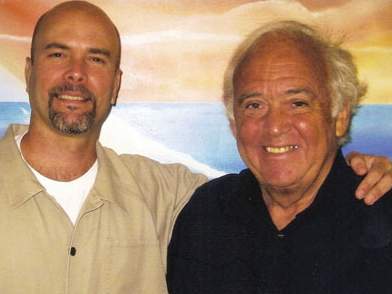
Attorney Martin Garbus and the Cuban Five
Earlier this summer we talked with renowned First Amendment and civil rights attorney Martin Garbus about joining the Cuban Five’s legal defense team. He recently filed an affidavit in the Miami Federal District Court based on US government misconduct of paying Miami journalists during the Cuban Five’s prosecution 14 years ago. As many listeners may know, these paid reporters covered the Cuban Five case in an almost hysterical fashion. The affidavit supports Cuban Five defendant Gerardo Hernández’ habeas corpus appeal and seeks the overturning of his wrongful conviction.
Attorney Martin Garbus:
- We’re saying that every person involved in the payments, the government, Radio Marti, the persons who received the payments. The journalists also violated the law.
- I think it is jury tampering. We’re saying that every dollar that was paid is a violation of the integrity of a jury trial. There were many millions of dollars.
- We’re saying that the jury trial was destroyed by a propaganda machine.
- The government then says, well you have to prove that. There are several different allegations.
- There is Radio Marti. In 1996, just about the time of the shoot down Radio Marti moves from Washington to Miami.
- It’s the only Voice of America station if you will that doesn’t operate out of Washington.
- It shows that the government was willing to give the Cuban exiles control over Radio Marti.
- In 1996, its recognized that Radio Marti is totally internal to effect the Cuban exile population in Miami.
- They then go to the newspapers, the Miami Herald, the Nuevo Herald and they (Radio Marti) start to give those journalists money.
- We filed an 80 page affidavit with hundreds of pages of exhibits.
- We’ve gone through relentlessly of payments made by Radio Marti by the government to journalists. We’ve come up with 11 journalists who have received close to a million dollars.
- The articles that they wrote should be read fairly carefully.
- They make the argument that the people who are being tried in the case were the early landing force for a Cuban invasion.
- American money is being given to writers who are then attacking America which has prosecuted people who have killed Americans. We’re trying to vacate the conviction.
Guest – Attorney Martin Garbus, one of the country’s leading trial lawyers. He has appeared before the United States Supreme Court and the highest state and federal courts in the nation. Time Magazine has named him “legendary . . . one of the best trial lawyers in the country.” He’s also known as the most prominent First Amendment lawyer.
—–


Washington DC Court Ruling on CO2
In April 2007, the US Supreme Court handed down its first decision related to climate change issues. The case was Massachusetts v. EPA and the high Court held that the Clean Air Act authorized the Environmental Protection Agency to regulate greenhouse gas emissions IF the agency determined that these emissions posed a danger to human health and welfare. The EPA did in fact make such an “endangerment” finding, and then proceeded to begin the process of adopting regulations to limit greenhouse gas emissions.
The initial lawsuit was brought by the Coalition for Responsible Regulation, which includes a range of petroleum-based industries, and supported by several states, including Texas, Alabama, Georgia, Nebraska, North Dakota, South Carolina, and Virginia. The EPA, on the other hand, was joined by California, New York, Delaware, Iowa, Maryland, Illinois, Maine, Massachusetts, New Mexico, Oregon, Vermont, Rhode Island, Washington and New York City. These three rules were challenged on various grounds – in the end the Court upheld the EPA’s action and resoundingly affirmed the agency’s authority and obligation to regulate greenhouse gas emissions.
Law Professor Eleanor Stein:
- Rolling Stone: The New Math of Green House Gas and Warming.
- Greenhouse gases are chemical substances, usually referred to a basket of six which contribute to the warming of the Earth because as they accumulate in the atmosphere they prevent the refraction of the Sun’s energy away from the Earth and back into space.
- Of these six substances the one often discussed is carbon dioxide which is the most plentiful, methane is among the most potent. Recent court case – The Coalition For Responsible Regulation Against the EPA – it was decided in the D.C. circuit a month ago.
- The Massachusetts case at the Supreme Court was about specifically regulation of emissions from new motor vehicles.
- Once the court ordered the EPA to do its endangerment investigation, it did so and made an endangerment finding in 2009. It found that greenhouse gas emissions were a danger to human health and welfare.
- The EPA was then required to regulate emissions of new motor vehicles. They did that adopting a set of rules known as the Tailpipe Rules.
- The EPA went on to adopt a set of rules for stationary sources ie, coal powerplants, those rules are known as the Timing and Tailoring Rules.
- Endangerment Finding / Tailpipe Rule / Timing and Tailoring Rule
- The current ruling of the D.C. court upholding the three rules – is a tremendous affirmation of current climate science, its a rejection of a lot of climate denial and other industry.
- The most extensive discussion is their analysis of the Endangerment Finding, which is the EPA’s analysis of the climate science.
- The Tailpipe Rule went into effect January 1, 2011. This will make a contribution to reducing emissions.
Guest – Law professor Eleanor Stein teaches a course called the Law of Climate Change: Domestic and Transnational at Albany Law School and SUNY Albany, in conjunction with the Environmental and Atmospheric Sciences Department at SUNY.
—–
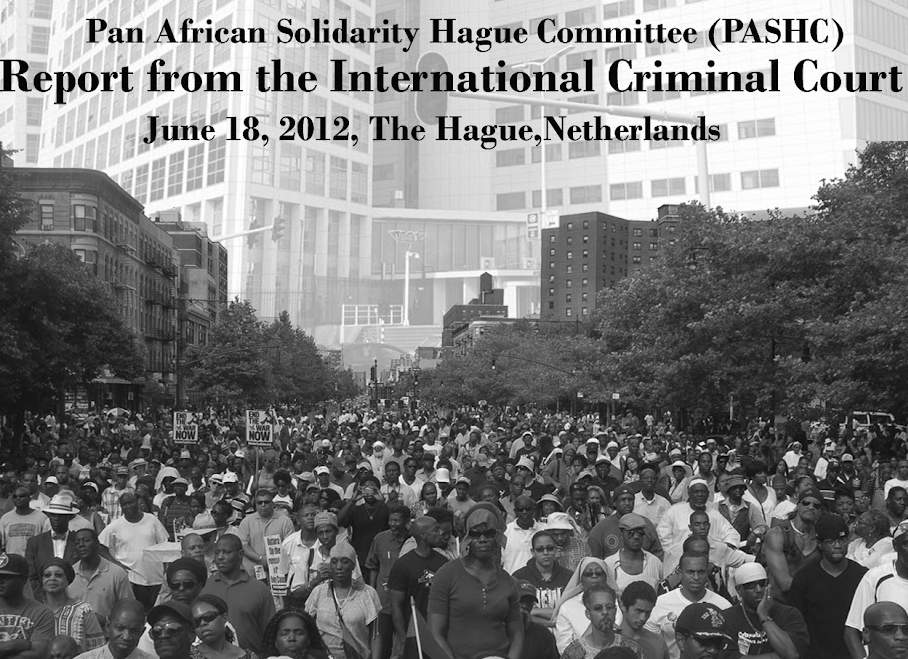
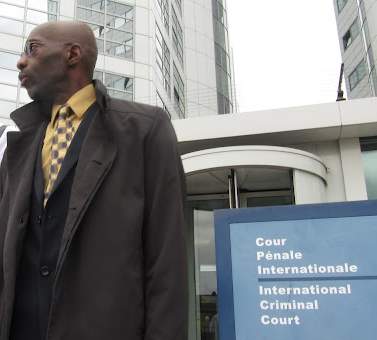
Pan African Solidarity Hague Committee Serves The ICC
In June of this year, the Pan-African Solidarity Hague Committee delivered a petition to the International Criminal Court at the Hague, Netherlands demanding they prosecute the United States, Great Britain, France, Italy, Canada, and NATO for war crimes and crimes against humanity in Libya, Cote d’lvoire, Haiti and the US. This campaign began in May of last year when thousands gathered to protest the US/NATO bombing of Libya, attacks on Zimbabwe and the racist assault against African-Americans in the United States. The evidence presented made a prima facie case of crimes committed and was the basis of the petition served this year.
Attorney Roger Wareham:
- The United States was very involved in the process of setting up the ICC.
- There are approximately 116 countries that have signed on at this point. Which means there are about one third of the countries in world who have not signed on.
- After 10 years the court came forward with its first conviction. It was a citizen of the Democratic Republic of Congo convicted of crimes against humanity.
- It’s record has been really a court to prosecute Africans.
- Of the cases that are in front of it now, all of them are Africans.
- It’s as if people who’ve violated human rights don’t exist outside the African continent.
- As one observer had said this is really an African criminal court and not an international criminal court.
- With the international criminal court, non governmental organizations can bring charges, bring communications saying we think there’s enough evidence to begin an investigation and prosecute.
- The ICC had taken out a warrant against Khaddafi saying he was a human rights violator, committed crimes against humanity, war crimes.
- In May 2011 when it was clear they were trying to effect regime change and assassinate Colonel Khadaffi we began a campaign to expose that. We saw the same pattern in terms of what happened to President Aristides in 2004.
- After the August 2011 rally we had the people’s tribunal in January 2012.
- In June 2012 we hand delivered the petition to the ICC. We asked to speak to the chief prosecutor. She declined to meet with us for some reason.
- They don’t want to deal with prosecuting anybody from the West.
- A communication was brought to the ICC for the war crimes from Operation Cast Lead. Two years later the ICC declined the petition. I think their technicality was Gaza wasn’t a state.
- There is a campaign by the West to re-colonize the African continent for its resources, to remove those heads of state that are obstacles Western re-penetration.
Guest – Attorney Roger Wareham, a member of the December 12th Movement, an organization of African people which organizes in the Black and Latino community around human rights violations, particularly police terror. Wareham is also the International Secretary-General of the International Association Against Torture (AICT), a non-governmental organization that has consultative status before the United Nations.
———————————————————————-
Afghanistan War, CIA Sponsored Terror, Civil Liberties, Criminalizing Dissent, Habeas Corpus, Human Rights, Iraq War, Military Tribunal, Political Prisoner, Surveillance, Torture, War Resister
Podcast: Play in new window | Download
Updates:
—-

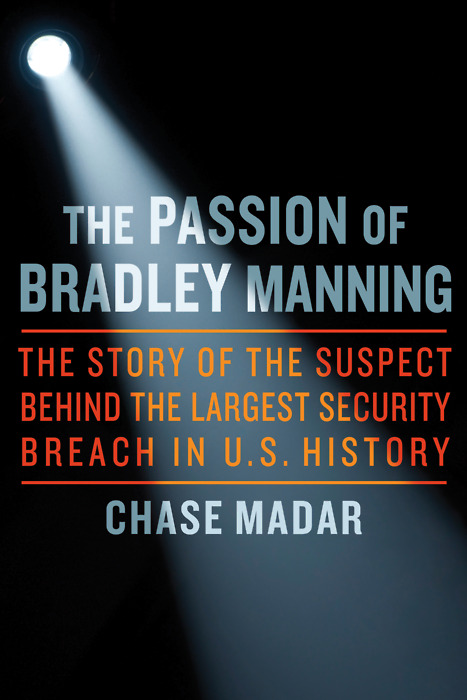
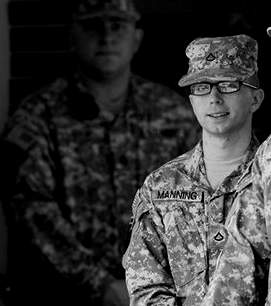
The Passion of Bradley Manning: The Story of the Suspect Behind the Largest Security Breach in U.S. History.
We continue to look into the the Bradley Manning story, the biggest whistle-blower case in US history. Attorney Chase Madar joins us in the studio, he’s the author of The Passion of Bradley Manning: The Story of the Suspect Behind the Largest Security Breach in U.S. History. The book moves through Manning’s childhood and up to what led him to allegedly upload volumes of classified secret information to Wikileaks. Madar highlights the value of publicly exposing the endless criminal and immoral actions while government secrecy spins out of control, classifying 77 million documents a year. He also asks what can be done to protect Bradley Manning as a whistle-blower. Since his arrest 2 years ago, Manning’s formal court martial proceedings are not scheduled to begin until February 2013, and as many listeners know the most lethal charge is aiding the enemy.
Attorney Chase Madar:
- I worked as a staff attorney for many years at a great non-profit in Bushwick section of Brooklyn doing all kinds of low tech services for Spanish speaking immigrants.
- I quit that and have been writing about foreign affairs. I got put on the sight of Bradley Manning by Tom Englehart, who edits the great TomDispatch web project.
- So many important issues collide in this case, whether its the comparative risk to our security of secrecy versus leaks. How we judge threats, how we misassess threats. How we use solitary confinement as punishment, is it an acceptable punishment?
- What power does information have anyway? A lot of intellectuals think that information has an incredible catalytic effect.
- Bradley Manning enlisted in the Army in October 2007. He’s deployed to Iraq after all kinds of training in Army intelligence in 2009.
- He allegedly begins leaking things in early 2010 and he’s arrested in late May 2010 over 2 years ago now. He was held in solitary confinement, very strict punitive isolation in Quantico Marine Corp base in Virginia, from July 2010 to April 2011.
- We’re looking at 2.5 years of pretrial confinement.
- You can divide up the Wikileaks leaks allegedly supplied by Bradley Manning in 3 categories. Iraq material, thousands of war logs: raw reports file by soldiers, Afghan war logs, it’s a composite of a war that’s weirdly aimless.
- Obama did campaign as the whistle-blower’s best friend, and he has prosecuted twice as many as all previous administrations.
- Here’s one theory I find persuasive. It’s important for Obama to have the intelligence services on his side. This was a way for him to show the CIA that he would go along them.
- I would like to see a serious change in foreign policy which has gone off the rails.
- We haven’t the kind of course correction with Obama that many had hoped for.
- I hope Wikileaks do disrupt foreign policy more. There’s been all kinds of smack talked about Bradley Manning, he’s a weirdo, a malcontent, he did what he did because he’s screwed up, he did because he’s gay.
- His motives are very plain to see in the chat logs between him and the informant.
- The Manning chat logs – they read like a tragic novella.
- So much of our secrecy law is designed to keep the American public in the dark.
- I think we have badly confused being clueless with being safe.
- He comes across as an immensely thoughtful, courageous and very principled young man. In some ways he’s an extreme version of the millennial generation who have a lot of education and potential but find themselves not doing too well.
- His father was in Naval Intelligence and he’d grown up with a sense of patriotic responsibilities.
- What makes him turn on the inside and leak these things?
- He’s asked to look into the arrest and capture by the Iraqi authorities a group of non-violent Iraqi protesters who were handing out pamphlets that were all about corruption in Iraqi government.
- We are light years away from total transparency.
- The main thing is to make records of the court proceedings publicly available.
- I think a guilty conviction and a heavy sentence of at least 50 years is a foregone conclusion.
- The wages of government secrecy, not security but disaster.
- It looks like the court martial won’t begin until January or February.
- Go to the Bradley Manning support network website. Send him a postcard.
- It’s your patriotic duty to browse the leaks.
- Legal Atrocities – by Chase Madar
Guest – Attorney Chase Madar , a TomDispatch regular and author of a new book, The Passion of Bradley Manning (OR Books). Madar tweets @ChMadar. He’s a contributor to the London Review of Books and Le Monde diplomatique and the author of a new book, The Passion of Bradley Manning (OR Books).
——————————————————-
Civil Liberties, Habeas Corpus, Human Rights, Military Tribunal, Political Prisoner, Surveillance, Torture, War Resister
Podcast: Play in new window | Download
Updates:
- Bradley Manning Update: Michael Ratner – We Have A Secret Trial Going On Right Now
- Park Slope Food Co-op Vote
- Len Weinglass Remembrance
—-

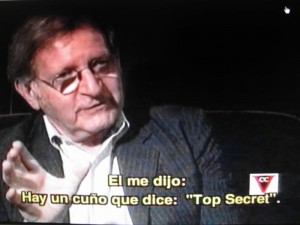
Leonard Weinglass TV Interview: Cuba 2004
We hear excerpts of an interview with attorney Leonard Weinglass and Miguel Alvarez, adviser on international and political affairs to Ricardo Alarcon, president of Cuba’s National Assembly. In this interview Len Weinglass discusses his early career representing the first African-American mayor of Newark, New Jersey, Daniel Ellsberg and the Pentagon Paper, plus crucial turning points that shaped his life story as a people’s lawyer.
———
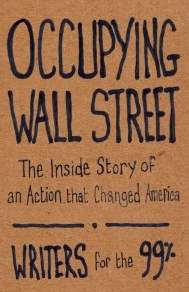
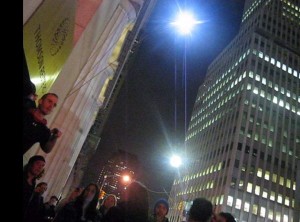
Occupying Wall Street: The Inside Story Of An Action That Changed America – Writers For The 99%
A collective of writers for the 99 percent have created a very interesting new book for OR Books, distributed by Haymarket Books. They’ve employed a unique writing method to chronicle the many details within the movement of Occupying Wall Street. A team of nearly 60 writers with rotating membership, collaborated on the describing the intricate structures and daily life of the movement such as running the general assembly, how the security and medical center operate and then the stories of the activists involved.
Colin Robinson:
- We were supportive of what was going on down in Zuccotti and I thought we should do a book about this too.
- Beginning of October I went down to the trash cans outside my apartment and pulled an old Budweiser carton out of the trash and cut it into the shape of a book cover and wrote on it with a Sharpie, “Occupying Wall Street, By Writers With the 99%.
- I photographed it with my iPhone at home, and sent it out with a press release, and New York Magazine picked it up saying Occupy Wall Street has a book and it then went everywhere.
- The journalists were calling me up saying, who are the writers for the 99 percent?
- So then I had to get some volunteers. We went down to Zuccotti and talked to some of the facilitators down there. They said you should just come to a General Assembly and we’ll put it on the agenda.
- Tell the GA about the book, get some volunteers and you’ll be fine.
- So we went down on a Wednesday night, in early October. I was not feeling comfortable about this.
- I was a little nervous about speaking at the GA to try and get permission to publish the book.
- They suggested to go to and Education and Empowerment Meeting Committee at 60 Wall Street and take it up there and ask for volunteers there.
- The following week we went the meeting and the response at that point was not very encouraging.
- People were suspicious of who we were. Whether this book was going to be seen as the official book of Occupy Wall Street, which we were saying it wasn’t but they thought it would be. And that it was going to develop an analysis that they didn’t agree with.
- No, we were saying its going to be descriptive, it’s not analytical. A lot of the twinkling was out flat, some of it was down. In the end, some guy stood up in the back and said I don’t think we should support this.
- We got blocked, he crossed his arms in front of chest. If this goes through, I’m walking out. We felt really wounded by it.
- But afterward some people from the committee came up and said we feel badly about the way you were treated, we’ll volunteer to help. We started meeting weekly at 60 Wall Street and the meetings got bigger and bigger.
- We came up with a structure, chapter by chapter. There were 2 themes in the book, one was a chronological account of the action. The day the occupation started on September 17.
- The drilling down of the daily detail for what life is like in the square. We’ve got sections in the book of how the kitchen worked, how the library worked, how the general assembly worked.
- I thought at first, what I would do would be to interview the people who are volunteering to write, pick the ones who could write well, and as kindly as possible tell the ones who couldn’t write they couldn’t be part of it.
- I soon realized that was not is the spirit of Occupy Wall Street.
- We were trying to reproduce the book in a way that reflected the values of Occupy Wall Street that meant it was produced in a very democratic, horizontal fashion. Anyone who wanted to participate could.
- We came up with a chapter structure, we sent people out into the square and we did about 200 interviews in the square. We allocated the interviews to each chapter and we tried to find 3 or 4 people to write each chapter.
- The whole book was written by 60 people in 2 weeks. This book absorbed the ethos of Occupy Wall Street.
- If you repress a little bit of it, its going to spring up somewhere else.
Guest – Colin Robinson, former Publisher, Verso Press and The New Press, and Scribner senior editor; John Oakes, former Grove Press Editor and founder of 4 Walls, 8 Windows and ORBooks. He’s written for magazines and newspapers including the New York Times and the London Guardian.
——————————————————
Civil Liberties, Death Penalty, Guantanamo, Habeas Corpus, Human Rights, Military Tribunal, Prison Industry, Supreme Court, Targeting Muslims, Torture, Truth to Power
Podcast: Play in new window | Download
Updates:
—-
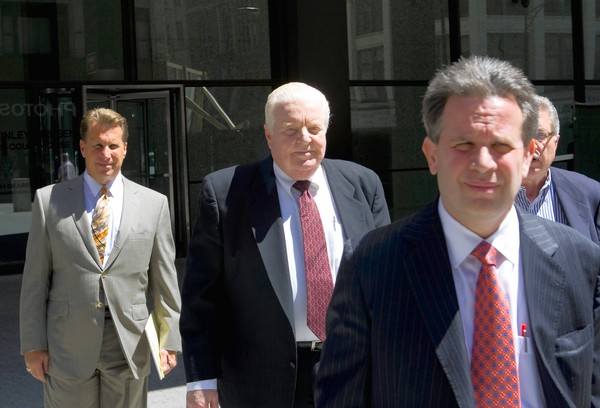
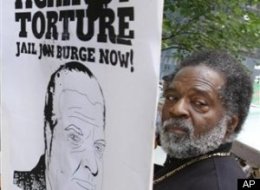
Chicago Torture Cases and Jon Burge’s Deposition
Torture has cast a long shadow over Chicago and its past administrations. Yet in the past year, with the conviction and sentencing of former Chicago Police Commander Jon Burge, Chicago has been a beacon of light in the fight against torture. Many are waiting to see how the city’s new administration will handle the ongoing torture cases of African American men that number in the hundreds. Former Chicago Police Commander Jon Burge was sentenced to 4 and a half years in prison for obstruction of justice and lying about torturing prisoners in the 1960s to obtain coerced confessions. Attorney Flint Taylor and the People’s Law Office in Chicago fought for decades to get prosecutions, and sentencing while the city poured millions of dollars to fund private lawyers for Burge’s defense.
Attorney Flint Taylor:
- We’ve been working on these cases since 1986. Deposing Jon Burge: We were reaffirming to the African American community that he was in prison and he is a prisoner.
- He was complaining about the lack of medical care and the kind of treatment he felt he should be getting.
- The struggle to put him behind bars has come to fruition. Pin stripe patronage, the city funding Burge’s defense. Rahm Emanuel needs to change course, he’s very close to Daly.
- Daly’s policy was not to settle these cases, not to apologize to the victims.
- There’s another issue about Burge getting his pension even though he’s in the joint.
- When you’re convicted you’re supposed to lose your pension.
- There’s eight people on the pension board, 4 of them are former cops.
- Several of the men who were responsible for Burge going to the penitentiary don’t have a claim civilly, never got a penny for the torture they suffered.
- There are about 20 men still in jail, still in the prisons, based on tortured confessions by Burge and his men.
- There is a demand to challenge these confessions, its been happening on a piece-meal basis.
- You most often find that torture does not lead to information that is useful. In the situation here it is to punish African American people.
- It’s a very racist type of torture in this city. There’s linkage here in what happened in Guantanamo, what happened in Abu Ghraib.
- The Fraternal Order of Police: They’re a very reactionary force when reforming the police department generally. In the early nineties when they fired Burge, the FOP stood up and paid for his defense.
- In case that has gotten him to prison now, the FOP paid a million dollars for 3 lawyers of his choice. Now, the same lawyers have switched hats, and the city is now paying them in the civil cases that we talked about.
- When it gets to a point where the city can’t pay for his defense, the FOP steps in.
- Burge deposition: I set up a series of questions for 3 hours where he consistently took the fifth amendment to all questions that would have implicated him if he answered truthfully.
Guest – Attorney Flint Taylor, a graduate of Brown University and Northwestern University School of Law and a founding partner of the Peoples Law Office. More bio
—–
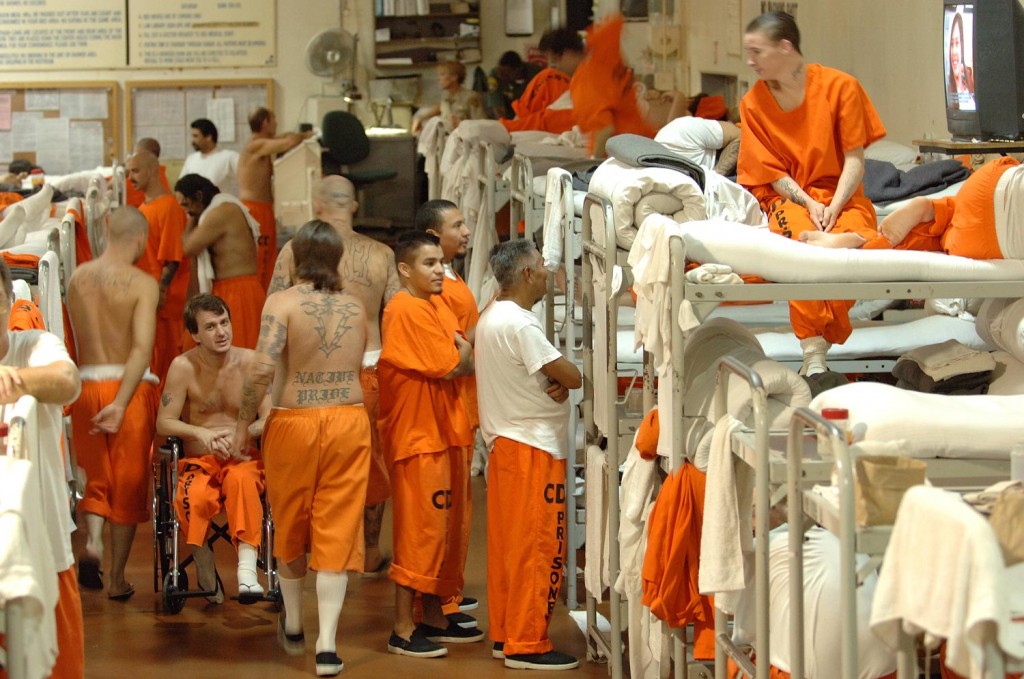
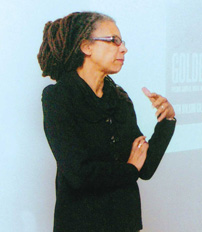
California Inmate Reductions
Last month, the U.S. Supreme Court ruling had ordered California to release 46,000 of its 143,435 inmates which has the state trying to figure out what happens next. The SCOTUS ruling affirmed a lower court order that required California to reduce its inmate population to 137% capacity. The state’s prisons are now at about 180% capacity and one cause of overcrowding problems is the state’s “three strikes law” which puts third time offenders in jail for life. Meanwhile, under Governor Brown’s current “re-alignment” program, the tens of thousands convicted of non violent, non-serious, non-sex crimes will serve sentences under county instead of state supervision. Our guest Professor Ruth Gilmore said to one media source, quote – “County jail expansion does not solve the underlying problems,” – -These are goals we can achieve now if we take this opportunity to shrink prisons and jails. Building bigger jails to ease prison numbers is the same as rearranging the deck-chairs on the Titanic: wasting the same dollars in different jurisdictions.
Professor Ruth Wilson Gilmore:
- California is out of line with the rest of country when it comes to parole policy. California sends twice the number of people back to prisons than other jurisdictions, when the person has committed a technical violation, late for a meeting, that kind of thing.
- For that reason, California prisons have been bulging.
- We see that numbers are kept up by this one category, parole violation return to custody. They have to start over and over and over again.
- The Supreme Court ordered the Department of Corrections to reduce the number of people in its custody in its current physical plant. In the 33 prisons, prison camps and dozens of facilities.
- One method to thin the prison population is shipping about 10 thousand prisoners out of the state of California, renting space in other jurisdictions. They’ve been shipping prisoners out of California for 2 and a half years.
- Cost does not seem to have an important effect on the kinds of political decisions, that have been made about prison expansion throughout the United States for the last 30 years.
- A year and a half ago the state presented a plan to the Ninth District court saying here are the changes that we will make to meet the 3 judges’ order that we reduce the number of people in the California State Authority Physical Plant.
- Then, the 3 judges agreed to let California delay in implementing the plan, while they appealed to the Supreme Court.
- California is the proving ground for a new relationship between the state and society. California is a place that started turning its back on public education.
- For some time, the union of California prison guards were a political force and continue to be quite powerful.
- There are many alternatives to locking somebody in a cage for part or all of their life. We should be cautious in thinking GPS tracking is the answer, because one of the huge barriers, that people convicted of a felony face in their lives, is the impossibility of them reintegrating into society.
- My colleague Michelle Alexander has put out a call in a campaign to end The New Jim Crow.
- Criticalresistance.org / Curbprisonspending.org
Guest – Professor Ruth Wilson Gilmore, author of Golden Gulag: Prisons, Surplus, Crisis, and Opposition in Globalizing California. Professor Gilmore has examined how political and economic forces produced California’s prison boom in Golden Gulag: Prisons, Surplus, Crisis, and Opposition in Globalizing California (University of California Press, 2007), which was recognized by ASA with its Lora Romero First Book Award. Gilmore’s wide-ranging research interests also include race and gender, labor and social movements, uneven development, and the African diaspora. She comes to the Graduate Center from the University of Southern California, where she taught courses in race and ethnicity, economic geography, and political geography, was the founding chair of the department of American studies and ethnicity, and won the USC-Mellon Award for Excellence in Graduate Student Mentoring. She also works regularly with community groups and grassroots organizations and is known for the broad accessibility of her research. She holds a Ph.D. in economic geography and social theory from Rutgers University.
————————————————
Civil Liberties, Criminalizing Dissent, FBI Intrusion, Green Scare, Guantanamo, Habeas Corpus, Human Rights, Iraq War, Military Tribunal, Political Prisoner, Prison Industry, Targeting Muslims, Torture, Truth to Power
Podcast: Play in new window | Download
Updates:
—-
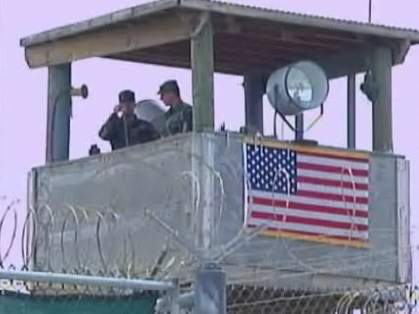
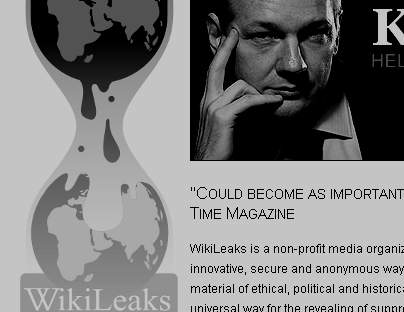
Guantánamo Leaks Must Be Met By Release of Obama Task Force Assessments
The 759 Guantanamo files that were classified “secret” cover nearly every inmate since the camp opened in 2002. The documents obtained by the New York Times and the Guardian last month, reveal how children, the elderly and mentally ill were wrongfully held. The documents also reveal that many prisoners were sent to Guantanamo for nearly nothing or to be interrogated. What did these documents reveal?
Attorney Shane Kadidal:
- These stories started on Monday morning, because administration officials gave out a briefing saying that the nickname of Osama’s couriers was given out by one of the detainees.
- Assuming information taken from Khalid Sheikh Mohammed
- We do know it took eight months from the time they identified this compound to the point they decided to strike at it. I think its clear, they relied on a whole slew of information from a variety of sources.
- We already know the true name of the courier, which is more important than a nickname came from agents on the ground and electronic surveillance.
- 172 detainees, 90 cleared from release, 2/3 of those from Yemen have been indefinitely suspended for repatriation because of the “underwear bomber.”
- The problem is so much of (media) attention is focused on the ones that will never be released.
- WikiLeaks – 2400 pages of documents almost all risk assessments of about 740 detainees who’ve been to Guantanamo
- They represent the Defense Departments best case for detaining someone.
- You have these long analysis of very shady facts, not detailing where allegations are coming from.
- If you look at the documents as a whole, it shows that most of the detainees were held on flimsy, unreliable information.
- The documents show that people were interrogated in GTMO about nothing to do with terrorist attacks in the United States. You had Samuel Hodge interrogated about the inner workings of Al-Jazzera
- Everyone ended up with the categorization of high or medium risk
- When you see a leak of this magnitude, the only corrective is to release more information and that’s what we’ve called for at CCR.
- The government quickly emailed us – They said consistent with the security clearances you signed on for, you have to treat this information as classified (leaked documents) even though its been scattered to the winds on every newspaper on Earth.
Guest – Attorney Shane Kadidal, senior managing attorney of the Guantánamo Global Justice Initiative at the Center for Constitutional Rights in New York City. He is a graduate of the Yale Law School and a former law clerk to Judge Kermit Lipez of the United States Court of Appeals for the First Circuit. In his eight years at the Center, he has worked on a number of significant cases in the wake of 9/11, including the Center’s challenges to the detention of prisoners at Guantánamo Bay (among them torture victim Mohammed al Qahtani and former CIA ghost detainee Majid Khan), which have twice reached the Supreme Court, and several cases arising out of the post-9/11 domestic immigration sweeps.
——-

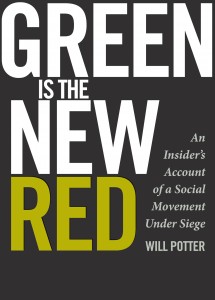

Green Is The New Red: An Insiders Account of A Social Movement Under Siege
We welcome Will Potter award-winning independent journalist and now the leading authority on “eco-terrorism.” He’s the author of the new book ,Green Is the New Red: An Insider’s Account of a Social Movement Under Siege, and it reveals a complex environmental movement emerging amid police state pressure. As we’ve reported here on Law and Disorder, environmental activism have been labeled terrorism under certain interpretation of the Patriot Act, essentially criminalizing dissent and chilling free speech in this country at a critical time. Our guest was an FBI target for merely leafleting against animal testing, and he was threatened to be put on the domestic terrorist watch list if didn’t comply with FBI demands. We talk more about that, the environmentalist movements and his new book.
Will Potter:
- My background is in mainstream newspapers. As I was working as a reporter at the Chicago Tribune, about 9 months after 9/11. I was covering breaking news, blood and guts.
- I decided to go out leafleting on a campaign I became aware of against a controversial animal testing company.
- Couple weeks later the FBI knocks on my door telling me I need to become a government informant and help infiltrate animal rights and environmental groups and if I didn’t they’d put me on the domestic terrorist list.
- It scared the tar out of me. I wish I could say it didn’t.
- Afterward it really lit a fire under me to figure out what was going on.
- One of the reasons I started the website was because of this new law being considered called the Animal Enterprise Terrorism Act.
- What I decided to do with the book is tell the personal stories of the people involved.
- I followed Daniel McGowan a few days before his sentence to how he ended up in this facility, his own journey as an activist. Daniel was convicted of serious crimes, two arsonists that didn’t harm anyone and he was labeled a terrorist.
- The book looks at the wide range of activity being labeled “eco-terrorism”
- The FBI has labeled the environmental and animal rights movement the number one domestic terrorism threat.
- These corporate campaigns were pushed for so long through the courts, politicians, and the press that over time they began to dovetail with government policy.
- The Animal Enterprise Terrorism Act is so broad it can even wrap up non-violent civil disobedience as terrorism, only if its directed at what is called animal enterprises.
- The real power of this is fear.
- The activists who are really effective and pushing the boundary are the ones being labeled eco-terrorists.
- I recently wrote about 3 bills that are under consideration for the Huffington Post. What Is Big Ag Trying To Hide.
Guest – Will Potter, award-winning independent journalist based in Washington, D.C., who focuses on “eco-terrorism,” the animal rights and environmental movements, and civil liberties post-9/11. Will’s work has appeared in publications including the Chicago Tribune, the Huffington Post, and the Vermont Law Review, and he has testified before the U.S. Congress about his reporting. He is the author of Green Is The New Red: An insider’s account of a social movement under siege forthcoming from City Lights Books.

























